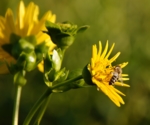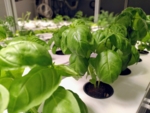Main navigation
Search Results
-
-
-
-
Press release - 09/07/2021 Refuels Are Suited for Wide Use
Refuels are renewable fuels that can be produced in different ways. When they are mixed and processed such that they meet the existing fuel standards, they are suited for all types of combustion engines. This is the result of the latest vehicle and fleet tests within the project “reFuels – Rethinking Fuels” at Karlsruhe Institute of Technology (KIT). Compared to fully fossil fuels, refuel mixes allow for a CO2 reduction by 25% at least. Moreover,…
https://www.biooekonomie-bw.de/en/articles/pm/refuels-are-suited-wide-use -
Press release - 09/12/2022 Digital Summit: Chancellor Scholz chooses Phoenix agricultural robot as his favorite
AI & robotics from the University of Hohenheim advance environmental protection & sustainability in agriculture / German Chancellor Scholz impressed by potential of Swabian multi-talent robot
https://www.biooekonomie-bw.de/en/articles/pm/digital-gipfel-kanzler-scholz-waehlt-agrar-roboter-phoenix-zu-seinem-favoriten -
Showcase Bioeconomy - 22/06/2021 Advanced biofuel breakthrough: HyFlexFuel converted sewage sludge and other biomasses into kerosene by hydrothermal liquefaction (HTL)
The EU funded research project HyFlexFuel recently succeeded to produce biocrudes via hydrothermal liquefaction (HTL) from a variety of biomasses, including sewage sludge, food waste, manure, wheat straw, corn stover, pine sawdust, miscanthus and microalgae in a pilot-scale continuous HTL plant at Aarhus University (Denmark).
https://www.biooekonomie-bw.de/en/articles/pm/advanced-biofuel-breakthrough-hyflexfuel-converted-sewage-sludge-and-other-biomasses-kerosene-hydrothermal-liquefaction-htl -
Press release - 29/11/2022 Proteins from Pastures: Success for initial feed trials
A tasty dish for chickens: Researchers from the University of Hohenheim in Stuttgart were able to feed the animals the first 50 kilos of protein extract that were obtained from pasture. Yet the plants found in fields and meadows offer much more than a new source of protein for pigs and poultry: They could also constitute an alternative to soy for human nutrition. They also form a basis for organic-based plastics and paper, energy, and…
https://www.biooekonomie-bw.de/en/articles/pm/proteine-aus-gruenland-schnitt-erste-fuetterungsversuche-verlaufen-erfolgreich -
Dossier - 28/04/2020 
Sustainable bioenergy
Biomass from forestry and agriculture along with residues from industry and households can contribute to our energy and raw material shift. Sustainable, regenerative biomass-based energy can become part of the energy mix of the future within the framework of a bioeconomy.
https://www.biooekonomie-bw.de/en/articles/news/Sustainable-bioenergy -
ROKO Farming - 03/08/2021 
Thinking upwards: vertical farming to be further developed into continuous production
ROKO Farming’s novel technology is designed to produce fruit and vegetables worldwide all year round, while also freeing up areas for rewilding. This semi-automatic production method created by the Ulm-based business has huge future potential, as their success in innovation competitions demonstrates.
https://www.biooekonomie-bw.de/en/articles/news/thinking-upwards-vertical-farming-be-further-developed-continuous-production
